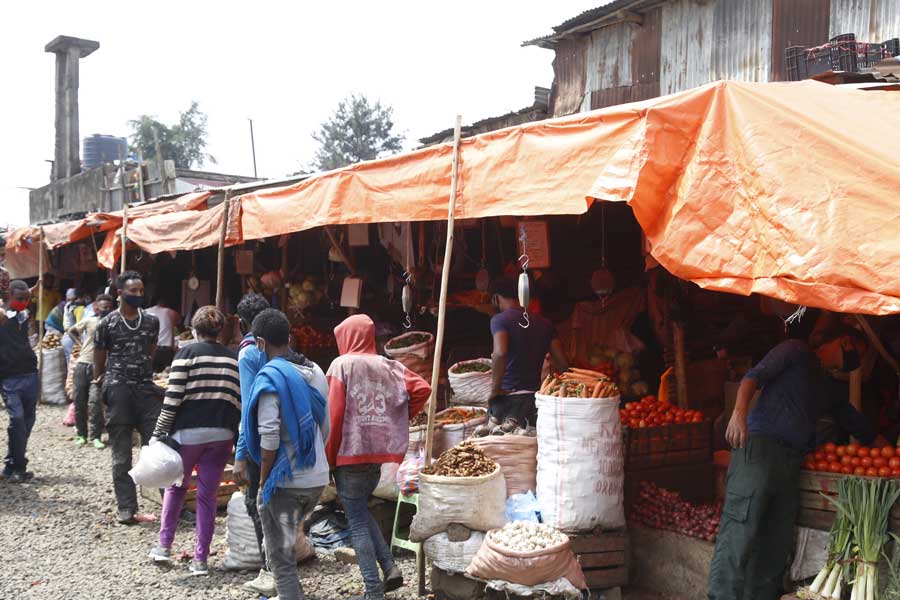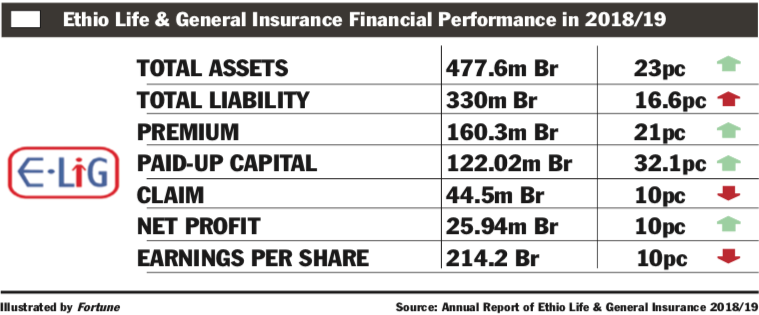
Fortune News | Aug 08,2020
On a regular Tuesday evening on Cameroon Street, across Bole Medhanialem Cathedral, Filimon Hailu and his friend Yohannes Bahru were making their way through a bustling crowd in one of the city's busiest areas. They wanted to grab a quick bite at a fast-food restaurant.
This particular neighbourhood has a wide range of such eateries to choose from. Within a 100-metre radius, dozens of popular eateries – from Wow Burger, Chanoly Noodles & Smoothie and Angla Burger to In-Joy Burger – await customers.
Filimon and Yohannes settled for Wow on the ground floor of the landmark Edna Mall, which opened last year.
The restaurant was crowded, hosting roughly 60 people. More were flowing in from each of its three entrances. When the two friends walked in, they were welcomed by the smiling Branch Manager, who showed them to an empty booth in the 280sqm restaurant.
“Apart from injera, burgers are the most satisfying food,” said Filimon.
He paid a little over 200 Br for a burger and a soda. Yohannis nodded in agreement. In the background, around a dozen kitchen staff could be seen working at lightning speed in an open kitchen, a trend dominating the eatery scene across the city lately. Both in their mid-twenties, the duo has been friends since their elementary school days. Their college years 700Km apart did little to diminish their amity. Filimon studied at the Addis Abeba School of Commerce, and Yohannes went on to study in Meqelle. They both now live in the capital and often meet to grab some food and catch up. Often, they prefer fast food joints like Wow Burger.
Their exposure to non-traditional food came from childhood experiences; neither have ever travelled overseas. The influence of television and pop culture have left their mark on them and their taste buds.
They are the familiar faces of contemporary Addis Abeba: young, educated, professional and slick. For Ashenafi Haile, the branch manager who superintends a busy location, nothing is surprising about such a crowd that throngs in for burgers, fries and a soda.
Rstaurateurs are observing people's eating habits changing. Chicken pizza at Effoi makes up 40pc of their pizza sales. The item was not even on the menu when the first location opened in 2007.
“It's usually like this unless it’s on Wednesday or Friday," he said, referring to the fasting days.
Founded by two friends, Abiyu Mekonnen and Haileleul Abawa, 11 years ago, Wow Burger opened its first location in a small shop near Ras Mekonnen Bridge, on Adwa Street. They began with an initial capital of 150,000 Br, five staff and a monthly rental of 5,000 Br.
In the decade since, the business has seen impressive growth. The partners recently opened their 10th branch in Arat Kilo, across the road from the Tourist Hotel, a historic landmark for Addis Abeba. They also run a training facility, where over 400 people have received coaching on the foodservice industry. Both previously lecturers teaching classes on business and entrepreneurship at Unity University, earning a 2,400 Br monthly salary, Abiyu and Haileleul had agreed to venture together into the world of fast food.
“The business doesn't require large capital," said Abiyu, explaining how they became interested in selling fast-food items, such as burgers. "It's not costly to customers.”
Their big idea was to open a restaurant where customers could have food on the table minutes after ordering. They have succeeded. It takes less than 10 minutes to cook and serve a burger at one of their locations, and around 15 minutes for a pizza, another popular item, along with shawarmas. Their most expensive menu item is a special pizza, priced at a little over 300 Br.
Abiyu and Haileleul are among a new breed of entrepreneurs who capitalised on the expanding food market.
Home to over four million people, Addis Abeba has seen a surge in chain restaurants in the last decade. According to the Addis Abeba Trade Bureau, close to 8,600 restaurants are operating in the capital, and 25 of the establishments are starred.
The growing middle-class created a business opportunity for new entrants willing to put their hard-earned money in the fast-food industry, with a considerable prospect for growth. They are encouraged by the disposable income of individuals in this class, the growing appetite for entertainment and their willingness to pay for it. The fast-food firms are also rushing to increase their presence across the capital, hoping that it would widen their customer base.
Such a story may not be new to African countries with similar-sized economies. In Kenya, the US-based KFC has opened almost two dozen branches, adding to many other international chains that have made headway in the fast-food market of the East African country. Not as many as Kenya, but Ethiopia also welcomed popular fast-food brands in the last half-decade. Founded in 1991, the South African-based Debonairs Pizza entered the Ethiopian market in 2014, with an investment capital of 25 million dollars, having three branches thus far and opening another soon.
Another restaurant franchisor, Spur Corporation, signed its first Ethiopian Spur Steak Ranch franchise agreement with Cucina Trading plc. Again, two years later, Pizza Hut became the third internationally franchised restaurant in the country after an agreement was reached between Belayab Foods & Franchises and Yum! Restaurants International Inc, the brand owner. So far, it has opened five branches with plans to bring the total to 10.
However, the fast-growing domestic chains are not without their problems.
Many find rent is exorbitant. Wow's space at Edna Mall costs over a quarter of a million Birr a month. For now, sales are good, and rent is not a pressing matter. However, inflation and the rising cost of living have begun to erode disposable income. The middle-class is feeling the pinch. Edible oil, cheese, eggs, meat and wheat have seen their prices on the upsurge. A single egg goes for as much as 8.5 Br on the market, and five litres of edible oil sells for over 630 Br.
Wow sources its ingredients from the domestic market, although 30pc is imported, including ketchup.
“We try to minimise expenditures, but the prices and market uncertainty are not helping,” said Abiyu.
Effoi Pizza, another popular restaurant chain, is grappling with similar issues. It has been 14 years since it opened its first branch and now operates in six locations across the city, manned by around 240 staff. Up to 20pc of Effoi's total revenues goes to paying rent.
Eating habits have changed, as observed by Tsega Woubishet, founder and manager of the pizza chain. Effoi sells a little over 1,000 pizzas daily, each going for an average of 250 Br. Almost half of these are chicken pizzas, which was not even on the menu when the first location opened in 2007. Though the sales might seem like good news, Tsega hopes to come with more variety.
“I would like it if the demand for chicken doesn’t grow past this,” said Tsega, though he understands customer preference will prevail.
Despite market issues, the demand for fast food is growing quickly. More businesses are sprouting up all over Addis Abeba to get a piece of the action.
Yohanis Gebreyesus, better known as Chef Yohanis, welcomes the changes.
“It is what it is,” he said, praising globalisation and the influence of pop culture in cultivating the demand for fast food joints.
Yohanis owns a chain restaurant, Weyra, currently finalising preparations to open a branch in Entoto, in addition to one it operates in Unity Park.
Keeping what is on the menu aside, chain restaurants like Effoi and Wow give special attention to interior design and sanitation, two aspects the more traditional dining establishments in the city leave largely unaddressed. Interior design is the most important aspect, according to Abiyu.
Decorated with red and white colours and televisions on all the corners, WOW Burger has uniformity in its looks at all the branches. Even though it is a one-time cost while opening. Effoi Pizza also focuses on how its branches are marked, as a quick glimpse of its wooden decorated interiors shows. Using local materials, Effoi spends roughly 1,250 Br a square metre on its interior design.
It is such investments in form made by fast-food companies appealing to the generation of Filimon and Yohannes who spend time in the joints for reasons beyond the food. It is a lifestyle.
PUBLISHED ON
Sep 10,2021 [ VOL
22 , NO
1115]

Fortune News | Aug 08,2020

Agenda | Mar 11,2023

Fortune News | Oct 26,2019

Viewpoints | Jul 05,2025

Fortune News | Mar 25,2023

Fortune News | Feb 15,2020

News Analysis | Dec 09,2023

Viewpoints | Apr 04,2020

Radar | Jul 17,2022

Viewpoints | Jan 07,2023

Dec 22 , 2024 . By TIZITA SHEWAFERAW
Charged with transforming colossal state-owned enterprises into modern and competitiv...

Aug 18 , 2024 . By AKSAH ITALO
Although predictable Yonas Zerihun's job in the ride-hailing service is not immune to...

Jul 28 , 2024 . By TIZITA SHEWAFERAW
Unhabitual, perhaps too many, Samuel Gebreyohannes, 38, used to occasionally enjoy a couple of beers at breakfast. However, he recently swit...

Jul 13 , 2024 . By AKSAH ITALO
Investors who rely on tractors, trucks, and field vehicles for commuting, transporting commodities, and f...

Nov 1 , 2025
The National Bank of Ethiopia (NBE) issued a statement two weeks ago that appeared to...

Oct 25 , 2025
The regulatory machinery is on overdrive. In only two years, no fewer than 35 new pro...

Oct 18 , 2025
The political establishment, notably the ruling party and its top brass, has become p...

Oct 11 , 2025
Ladislas Farago, a roving Associated Press (AP) correspondent, arrived in Ethiopia in...